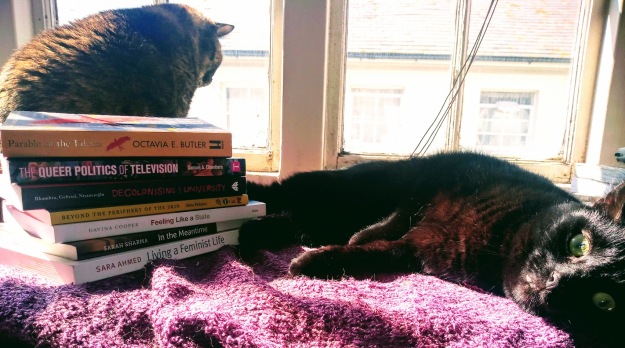This research project presents an analysis of discourses presented by school students under the banner of the movements: Fridays for Future, Youth for Climate and School Strike 4 Climate. It contends that these movements go beyond just presenting a vision of an inescapable future, or a simplistic request for adults to listen to science. Instead, their vision is constructive of a better world as they challenge the failures of politicians, and arguably the adult public, demanding to play an active role in policymaking when it comes to the climate crisis.
The video essay below is an immersive experience (please listen to it with headphones if you can) and highlights some of the key issues that young people are raising and the complexity of the solutions they are grappling with. This was presented at “Taking Care in the Climate Crisis” Conference 2021.
The research argues that this movement is constructed of critical utopian discourse. It considers how the anxiety in the Student Strike movement creates optimism, and the narratives of cathedral thinking are demonstrative of an open-ended utopian process. It aims to give an academic voice and documentation and represent the work and future imaginings of these movements, bringing the voices of young people, rather than their problematic media representations into spaces where power is held and change can be made.
What Next? Responding to the Pandemic
There has been concern over a turn away from climate activism during and after the pandemic leading to excuses to pursue business as usual. Youth protests have a vital role to play in re-emphasising the immediacy of the climate crisis. The movement initially relied on school children absconding from school on Fridays but the movement has had to find new modes of engagement during the pandemic. This has included moves to digital protest in the pandemic, movements such as @fff.digital have grown in popularity during the pandemic, there have been online streaming events, digital pickets and digital teach-ins. The movement has aligned with Black Lives Matter and continue to link colonial and capitalist oppression and violence with the climate crisis. An alliance of organisations conducted hybrid protests in Germany during the digital strike for climate change on 24 April 2020 as #FightEveryCrisis. Nineteen thousand joined the online live stream with contributions from activists, artists, and scientists. Alternative occupations took place where banners from 70 local groups were spread out in front of the German Bundestag. The UK Student Climate Network has used the time to build up systems and strategies, work on campaigns, and develop educational resources.
Magnetic Ideals are interested in continuing research and connecting with youth protestors about both their democratic demands and their modes of activism during and following lockdown. If you are interested in being involved in this research please get in touch.
Heather McKnight (PhD, Legal Studies)
Read the full article ‘THE OCEANS ARE RISING AND SO ARE WE’: EXPLORING UTOPIAN DISCOURSES IN THE SCHOOL STRIKE FOR CLIMATE MOVEMENT in Brief Encounters journal: http://briefencounters-journal.co.uk/BE/article/view/217
Pending conference paper: 2021 – Critical Legal Studies, Conference, University of Dundee – Educating Utopia: The School Strike for Climate Crisis and their Legislative Visions
“SAVE THE FUTURE” – Utopian Temporalities of the School Strikes for Climate Crisis, H McKnight, Renewal Journal 28 (3) Political Temporalities, 2020




